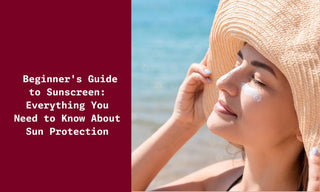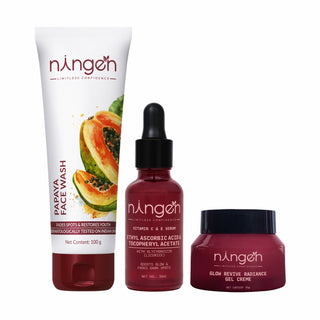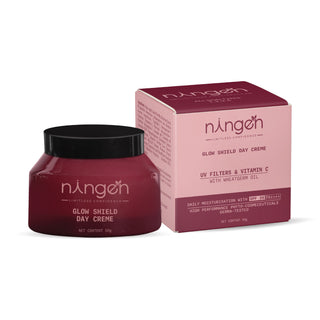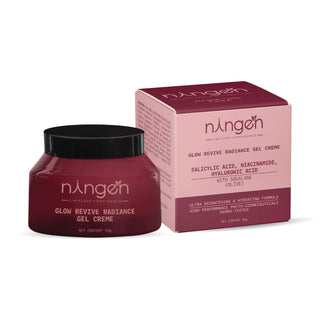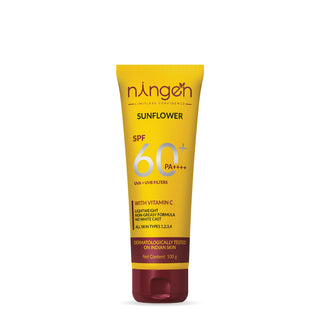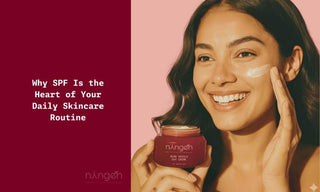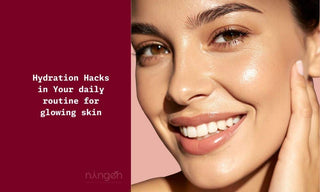“A little sunscreen today saves your skin from a lot of damage tomorrow”.
Sunscreen isn’t just another step in your skincare routine—it’s the foundation of healthy, glowing skin. Whether you’re running errands, lounging by the pool, or simply stepping out for a quick walk, your skin is constantly exposed to the sun’s harmful rays. Over time, this exposure can lead to dark spots, premature aging, and even skin cancer. That’s why sunscreen is the ultimate must-have for everyone, every day, no matter the weather or season.
In this beginner’s guide, we’ll break down everything you need to know about sun protection, why sunscreen is non-negotiable, and how it keeps your skin safe and radiant in the long run. Ready to make sunscreen your skincare BFF? Let’s deep dive!
In This Article;
- The Importance of Sunscreen for Skin Health
- Understanding UV Rays: UVA vs. UVB
- Selecting the Right Type of Sunscreen for Your Skin Type
- Chemical Sunscreens: Pros and Cons
- Physical (Mineral) Sunscreens: Pros and Cons
- Decoding SPF Ratings: What They Mean for Protection
- When to Apply Sunscreen: Timing is Key
- Proper Application Techniques for Maximum Efficacy
- Different Forms of Sunscreen: Creams, Sprays, and Sticks
- Sunscreen and Skin Types: Oily, Dry, and Sensitive
- Seasonal Sunscreen Use: Why It Matters Year-Round
- Indoor Sunscreen Use: Do You Need It?
- The Role of Sunscreen in Preventing Premature Aging
- Effective Sun Protection Beyond Sunscreen
- Recommendations for Popular Sunscreen Products
- Common Misconceptions About Sunscreen
- The Expiration of Sunscreen: When to Replace It
- The Bottom Line
- Quick View
- Frequently Asked Questions
The Importance of Sunscreen for Skin Health
Sunscreen is one of the most essential products for maintaining healthy skin. It acts as a shield, protecting your skin from harmful UV rays that can cause long-term damage. Here’s why sunscreen is a non-negotiable step in your skincare routine:
-
Prevents Sunburn: Sunscreen protects your skin from painful sunburns caused by overexposure to UVB rays.
-
Reduces Skin Cancer Risk: Prolonged UV exposure increases the risk of skin cancer, including melanoma. Sunscreen lowers this risk by blocking harmful rays.
-
Slows Premature Aging: Sunscreen helps prevent wrinkles, fine lines, and sunspots caused by UVA rays, keeping your skin youthful and glowing.
-
Fights Hyperpigmentation: It minimizes dark spots, melasma, and uneven skin tone, ensuring a brighter complexion.
-
Protects All Year Round: UV rays can damage your skin even on cloudy days or indoors through windows, so sunscreen is vital all year.
By applying sunscreen daily, you’re investing in your skin’s health and future. It’s a simple habit that makes a huge difference in keeping your skin healthy, radiant, and protected!
Here's a quick guide to choosing the right sunscreen:

Also read: Does sunscreen prevent tanning?
Understanding UV Rays: UVA vs. UVB
When it comes to skin health, understanding UV rays is crucial. These invisible rays from the sun can have harmful effects on your skin, leading to premature aging and even skin cancer.
UVA Rays
-
Penetration: UVA rays penetrate deeper into the skin layers.
-
Effects: They are primarily responsible for premature aging, causing wrinkles and uneven skin tone.
-
Presence: Present throughout the day, regardless of the season.
UVB Rays
-
Penetration: UVB rays impact the outer layer of the skin.
-
Effects: They are the main culprits behind sunburn.
-
Presence: Most intense between 10 AM and 4 PM, especially from late spring to early fall.
It’s essential to opt for broad-spectrum sunscreen to ensure protection against both UVA and UVB rays, safeguarding your skin from harmful effects such as skin cancer and premature aging. Always reapply sunscreen, especially after swimming or sweating, to maintain its efficacy.
Selecting the Right Type of Sunscreen for Your Skin Type
Choosing the right sunscreen isn't just about picking a random SPF off the shelf—it's about finding a formula that suits your skin type and lifestyle. Here's a simplified guide:
-
Oily Skin: Opt for oil-free, non-comedogenic sunscreen that won't clog pores. Gel-based or water-based options are best.
-
Dry Skin: Look for moisturizing sunscreens that contain hydrating ingredients like hyaluronic acid or glycerin.
-
Sensitive Skin: Choose fragrance-free, hypoallergenic formulas. Physical sunscreens are often less irritating for sensitive skin types.
-
Combination Skin: A non-greasy, lightweight formula strikes a balance, providing coverage without overloading the skin.
-
Uneven Skin Tone: Consider sunscreens with added antioxidants that help address hyperpigmentation caused by sun exposure.
Also read: 5 tips of choosing the best sunscreen for your skin type.
Chemical Sunscreens: Pros and Cons
Chemical sunscreens are popular options in sun protection, but like any skincare product, they come with their own pros and cons. Understanding these can help you decide if they're right for your skin type and lifestyle.
Pros:
-
Lightweight and Easy to Apply: Chemical sunscreens are often lightweight, making them easy to apply and blend seamlessly into the skin without a white cast.
-
Effective UVB and UVA Protection: Many chemical sunscreens offer broad-spectrum protection, safeguarding the skin against both UVB radiation and UVA rays that cause premature ageing and skin cancer.
-
Versatile Formulation: They are often formulated with additional skincare benefits, such as moisturizing agents for dry skin or non-comedogenic properties for oily skin.
Cons:
-
Potential for Skin Irritation: Some active ingredients, like oxybenzone and avobenzone, can cause irritation, making them less suitable for sensitive skin.
-
Regular Reapplication Required: Chemical sunscreens need frequent reapplication, especially during extended sun exposure or after swimming, as they are absorbed into the skin and deactivate over time.
-
Environmental Concerns: Certain chemical sunscreens have been criticized for their potential harmful effects on marine life and coral reefs.
Balancing these factors can guide you in your sun protection journey, ensuring safe and effective sun exposure management.
Physical (Mineral) Sunscreens: Pros and Cons
When it comes to safeguarding your skin from harmful UV radiation, understanding the pros and cons of physical (mineral) sunscreens is essential.
Pros:
-
Immediate Protection: Physical sunscreens provide instant protection upon application, reflecting UV rays off the skin's surface.
-
Broad-Spectrum Protection: With active ingredients like Zinc oxide and titanium dioxide, they shield against both UVA and UVB radiation.
-
Gentle on Skin: Ideal for sensitive skin, these sunscreens are less likely to cause irritation or allergic reactions.
-
Eco-Friendly: Often considered reef-safe, they are less harmful to marine life compared to some chemical sunscreens.
Cons:
-
White Cast: These products can leave a visible white residue, making it challenging for those with darker skin tones.
-
Thick Consistency: They tend to be thicker and less spreadable, which might feel heavy on oily skin.
-
Frequent Reapplication: Easily rubbed off, especially through sweat or water exposure, requiring regular reapplication.
In choosing sun protection, consider your skin type, lifestyle, and environmental impact to find the right balance of protection and convenience with physical sunscreens.
Decoding SPF Ratings: What They Mean for Protection
Navigating sunscreen labels can be a daunting task, especially when confronted with terms like SPF. So, what exactly is SPF, and what does it mean for your skin?
SPF Explained:
-
SPF (Sun Protection Factor) measures the level of protection offered against UVB radiation, the primary cause of sunburn and a contributor to skin cancer.
-
For example, SPF 30 theoretically allows you to stay in the sun 30 times longer than you might without protection.
SPF Ratings and Their Protection Levels:
|
SPF Rating |
Protection Level |
|
SPF 15 |
Blocks 93% of UVB rays |
|
SPF 30 |
Blocks 97% of UVB rays |
|
SPF 50 |
Blocks 98% of UVB rays |
Choosing the Right SPF:
-
For everyday activities, SPF 15-30 is typically sufficient.
-
For extended outdoor exposure, opt for SPF 30 or higher, and ensure it's a broad-spectrum sunscreen for UVA protection.
Remember, no sunscreen can block 100% of UV rays, and reapplication every two hours, or after swimming or sweating, is crucial.
Ultimately, understanding SPF helps you make informed decisions, ensuring that your skin remains protected against the harmful effects of sun exposure.
When to Apply Sunscreen: Timing is Key
Applying sunscreen at the right time is crucial for optimal sun protection. Here's a concise guide:
-
Apply Sunscreen 15-30 Minutes Before Sun Exposure: This allows the active ingredients in both chemical and physical sunscreens to form a protective barrier on your skin.
-
Don't Skip Cloudy Days: UVA and UVB radiation can penetrate through clouds, so apply sunscreen daily, regardless of the weather.
-
Reapply Every 2 Hours: Sunscreen can wear off due to various factors like sweating, swimming, or towel drying. Reapplying ensures continuous protection.
-
After Swimming or Sweating: Even water-resistant sunscreens need reapplication after toweling off or excessive sweating.
-
Under Makeup: If you're outside often, opt for a broad-spectrum sunscreen with a higher sun protection factor under your makeup to combat UV radiation and blue light exposure.
Sunscreen Application Schedule:
Proper Application Techniques for Maximum Efficacy
Ensuring you get the most from your sunscreen requires proper application techniques. Begin by selecting the right type of sunscreen. Choose from chemical sunscreens, which absorb UV radiation, or physical sunscreens like Zinc oxide, which reflects harmful rays. Opt for broad-spectrum protection to guard against both UVA and UVB rays.
Proper Application Steps:
-
Amount: Use at least a nickel-sized dollop for the face and a shot glass amount for the body.
-
Timing: Apply 15-30 minutes before sun exposure to allow chemical sunscreens to fully absorb and start working.
-
Coverage: Don't forget often-missed spots like ears, back of the neck, and tops of feet.
-
Reapply: Reapply every two hours and immediately after swimming or sweating, even if you're using a water-resistant sunscreen.
Key Considerations:
-
Skin Type: Choose formulations best for your skin type—opt for oil-free for oily skin or hydrating formulas for dry skin.
-
Avoid White Cast: To prevent or reduce the white cast from mineral sunscreens, try tinted versions which blend better with skin tones.
Proper use of sunscreen is crucial in protecting against skin cancer, premature aging, and uneven skin tone caused by UV and blue light exposure.
Also read: How to apply sunscreen on face?
Different Forms of Sunscreen: Creams, Sprays, and Sticks
When it comes to sun protection, choosing the right form of sunscreen is crucial for effective and convenient application. Here's a quick guide to the different forms available:
1. Cream Sunscreens:
Ideal for dry skin, cream sunscreens are thick and moisturizing, providing a smooth, even layer of protection. They're perfect for the face and areas prone to dryness.
2. Spray Sunscreens:
Spray sunscreens offer a quick, easy application, making them great for hard-to-reach areas. However, it’s important to ensure an even coat to avoid missed spots. Ideal for those with oily skin or for application on large areas of the body.
3. Stick Sunscreens:
Sticks are convenient for targeted application, especially on the face, neck, and ears. They're less likely to cause a mess, making them great for on-the-go use. They are particularly useful for sensitive skin due to their precise application.
Sunscreen and Skin Types: Oily, Dry, and Sensitive
Comparison Table:
|
Skin Type |
Recommended Sunscreen |
Key Ingredients |
|
Oily Skin |
Chemical sunscreen |
Matte finish, non-comedogenic |
|
Dry Skin |
Mineral sunscreen + moisturizer |
Hydrating agents |
|
Sensitive Skin |
Physical sunscreen |
Zinc oxide |
Seasonal Sunscreen Use: Why It Matters Year-Round
It's a common misconception that sunscreen is only necessary during the scorching summer months. However, guarding your skin from the harmful effects of UV radiation is a year-round necessity. Here's why:
-
Consistent UV Exposure: UV radiation remains a threat even on cloudy or cool days. Up to 80% of UV rays can penetrate clouds, making it essential to apply sunscreen regardless of the season.
-
Prevention of Skin Damage: Continuous exposure to UVB radiation without protection leads to skin cancer, premature aging, and uneven skin tone. Using a broad-spectrum sunscreen daily helps inhibit these adverse effects.
-
Winter Reflection: In snowy conditions, UV rays reflect off the snow, intensifying your exposure. Skincare products with physical blockers like Zinc oxide can provide excellent protection.
-
Indoor UV radiation: Even indoors, UV light from windows and blue light from screens can impact skin health. A broad-spectrum sunscreen offers a shield against these.
Indoor Sunscreen Use: Do You Need It?
When thinking about sun protection, we often picture beach days and outdoor adventures. But did you know that sunscreen use is crucial even indoors? Here's everything you need to consider about indoor sunscreen use:
Why Apply Sunscreen Indoors?
-
UV Radiation Penetration: UVA rays can penetrate glass windows, leading to skin damage even indoors. Without protection, you risk exposure to harmful rays that contribute to skin cancer and premature ageing.
-
Blue Light Exposure: Devices like phones and computers emit blue light, which may lead to uneven skin tone over time.
Choosing the Right Sunscreen for Indoors
-
Broad-Spectrum Protection: Opt for sunscreens that offer protection against both UVA and UVB radiation.
-
Lightweight Formulas: Consider using lighter, non-greasy sunscreens for comfort when indoors, especially if you have oily skin.
-
Chemical and Physical Sunscreens: Balance your needs—chemical formulas work well under makeup, while mineral sunscreens offer great protection with physical blockers like zinc oxide.
Recommended Sunscreen Types:
|
Sunscreen Type |
Benefits |
|
Mineral Sunscreens |
Physical blockers like Zinc |
|
Chemical Sunscreens |
Better for seamless application |
Remember, consistent sunscreen use, both indoors and outdoors, is a vital part of a comprehensive skincare routine. Protect your skin today to ensure a healthier tomorrow.
The Role of Sunscreen in Preventing Premature Aging
When it comes to keeping your skin youthful and radiant, sunscreen plays a crucial role in preventing premature aging. The sun's UV rays are a leading cause of skin damage, contributing to wrinkles, fine lines, and dark spots. Here's how sunscreen helps combat these effects:
-
UV Protection: UV radiation breaks down collagen and elastin, leading to sagging skin. A broad-spectrum sunscreen shields against both UVA and UVB rays, essential for protecting your skin's structural integrity.
-
Prevention of Uneven Skin Tone: UV exposure can cause hyperpigmentation and uneven skin tone. Sunscreens with active ingredients like Zinc oxide act as physical blockers, preventing UV light from reaching deeper layers of the skin.
-
Minimizing Blue Light Damage: Modern sunscreens also offer protection against blue light emitted by screens, known to contribute to skin aging.
-
Daily Use for All Skin Types: Whether you have dry, oily, sensitive, or combination skin, there’s a sunscreen designed for you. Consistent use, even when it’s cloudy, minimizes long-term damage.
Sunscreen isn't just for sunny days—it's a daily shield against environmental damage and a vital part of any effective skincare routine. Choose wisely to defend your skin against premature aging!
Effective Sun Protection Beyond Sunscreen
When it comes to sun protection, sunscreen is just the beginning. While essential, it's important to incorporate additional methods to guard your skin against harmful UV radiation. Combining sunscreen with other protective measures helps enhance your defense against sun damage.
Covering Up: Clothing and Accessories
Clothing serves as the first line of defense against the sun's rays. Opt for long-sleeved shirts, pants, and wide-brimmed hats to cover as much skin as possible. Look for garments labeled with UPF (Ultraviolet Protection Factor), which indicates the fabric's effectiveness in blocking UV radiation. Sunglasses with UV protection are another must-have accessory to shield your eyes from UV damage and reduce the risk of cataracts. Make fashion work for your health by choosing accessories that not only complement your style but also offer substantial protection from the sun.
-
UPF Clothing: Blocks up to 98% of UV radiation.
-
Wide-brimmed Hats: Protects face, neck, and ears.
-
UV-blocking Sunglasses: Reduces eye strain and skin damage around the eyes.
Seeking Shade: Smart Outdoor Strategies
Maximize your sun protection by being mindful of your environment. Whenever possible, seek shade, especially during peak sun intensity hours between 10 a.m. and 4 p.m. Plan outdoor activities, like exercising or gardening, for early morning or late afternoon when the sun's rays are less intense. If shade is scarce, create your own by carrying a portable umbrella or installing sunshades in outdoor seating areas. These strategies not only provide comfort but significantly reduce the risk of sun exposure.
-
Peak Sun Hours: 10 a.m. to 4 p.m. when UV radiation is strongest.
-
Portable Umbrellas: Great for beaches and picnics.
-
Sunshades and Awnings: Ideal for patios and balconies.
By combining sunscreen with these additional protective measures, you can significantly reduce the harmful effects of sun exposure, ensuring your skin remains healthy and radiant. Remember, effective sun protection is about embracing a comprehensive approach to shield your skin from the sun's harmful rays.
Recommendations for Popular Sunscreen Products
Navigating the sunscreen aisle can be daunting, but selecting the right product is crucial for effective sun protection. Here’s a compact guide to aid your choice:
Sunscreen Type:
-
Chemical Sunscreens: Absorb UV rays & transform them into heat. Look for active ingredients like oxybenzone and avobenzone. They often have no white cast, making them ideal for daily use.
-
Physical Sunscreens (Mineral Sunscreens): Use zinc oxide or titanium dioxide to physically block UV rays. They're suitable for sensitive skin and offer immediate protection.
Formulation:
-
Lotion: Provides even coverage and is excellent for dry or normal skin.
-
Spray Sunscreens: Convenient but ensure thorough application to avoid missed spots.
Features to Consider:
-
SPF (Sun Protection Factor): Aim for SPF 30 or higher for daily use. This guards against UVB radiation, which causes sunburn.
-
Broad-Spectrum Protection: Shields skin from both UVA and UVB rays, helping prevent skin cancer and premature aging.
-
Water-Resistant: Ideal for beach outings and sports.
Common Misconceptions About Sunscreen
Sun protection is crucial, yet many misconceptions about sunscreen persist, leading to inadequate protection against harmful UV radiation. Let's clear up some common myths.
-
Myth: Dark skin doesn't need sunscreen.
Fact: All skin tones are susceptible to UV damage, which can lead to skin cancer and premature ageing. Broad-spectrum sunscreen protects against both UVA and UVB rays for everyone. -
Myth: Sunscreen is only for sunny days.
Fact: UV radiation penetrates clouds; hence, sunscreen is necessary on overcast days too. Daily protection helps keep skin healthy. -
Myth: High SPF means full-day protection.
Fact: Sun Protection Factor (SPF) indicates the level of UVB protection, not duration. Reapplication within every two hours is crucial, especially after swimming or sweating. -
Myth: All sunscreens leave a white cast.
Fact: While some mineral sunscreens with Zinc oxide might leave a residue, there are options like tinted formulations that suit various skin tones. -
Myth: Chemical sunscreens are harmful.
Fact: Chemical sunscreens are safe and effective. They differ from physical blockers but both provide necessary protection when used correctly.
Understanding these myths improves your sunscreen routine, ensuring better defense against the harmful effects of sun exposure.
The Expiration of Sunscreen: When to Replace It
When it comes to sunscreen, knowing when to replace it is crucial for effective sun protection. Sunscreen has a shelf life, generally about three years from the date of manufacture, but its efficacy can diminish sooner if not stored properly.
Here are key pointers to consider:
-
Check Expiry Date: Always look for an expiration date on the bottle. If it's past the date, the sunscreen may not provide adequate protection against UV radiation.
-
Signs of Degradation: If the sunscreen changes color, consistency, or emits an odd smell, it's time to toss it out, even if it's before the expiry date.
-
Storage Matters: Keep sunscreen in a cool, dry place. Excessive heat or exposure to direct sunlight can compromise its active ingredients, like Zinc oxide or chemical components.
A simple guideline: replace sunscreen every year, especially if it’s exposed to heat frequently or you're unsure when it was first opened. Unprotected skin can lead to premature aging and increase the risk of skin cancer, making timely sunscreen replacement essential for your health.
The Bottom Line
Sunscreen is your skin’s best friend, offering daily protection against harmful UV rays, premature aging, and serious health risks like skin cancer. By choosing the right sunscreen for your skin type, applying it correctly, and complementing it with other sun protection measures like shade, protective clothing, and sunglasses, you’re investing in the long-term health and appearance of your skin.
Consistent use of sunscreen isn’t just for sunny days or summer months—it's a year-round commitment. Whether indoors or outdoors, make sunscreen a non-negotiable step in your routine. Protect your skin today, and it will thank you tomorrow with health, radiance, and resilience.
Your journey to healthier, glowing skin starts with this simple yet powerful habit. So grab your sunscreen, apply generously, and step into the world confidently, knowing your skin is safeguarded every step of the way!
"Remember, The sun never takes a day off, and neither should your sunscreen."
Quick View
Sunscreen is essential for protecting your skin from harmful UV rays, preventing premature aging, and reducing the risk of skin cancer. Choose a broad-spectrum sunscreen with SPF 30 or higher, apply it correctly (don’t forget areas like ears and neck), and reapply every two hours. Use it daily, regardless of weather or season, and pair it with other sun protection measures like hats and sunglasses. Healthy, radiant skin starts with sunscreen.
Frequently Asked Questions
Q1. How much sunscreen should I use?
It’s essential to apply the correct amount of sunscreen to ensure you're fully protected. Dermatologists recommend the "teaspoon rule" for effective coverage. Use approximately half a teaspoon for the face and neck, and at least one ounce (about a shot glass full) for the entire body. This ensures adequate protection against UV radiation, protecting against skin cancer and premature aging, leaving your skin tone even and healthy.
Q2. Can I mix sunscreen with my moisturizer?
It might be tempting to multitask by mixing sunscreen with your moisturizer, but doing so can dilute the protection factor of your sunscreen. Instead, apply a broad-spectrum sunscreen as a separate layer after moisturizing. This ensures that the active ingredients in your sunscreen, whether chemical sunscreens or physical blockers like Zinc oxide, maintain their efficacy and offer complete defense against harmful effects from sun exposure and blue light.
Q3. What should I do if I forget to apply sunscreen?
If you forget to apply sunscreen and find yourself exposed to the sun, take action as soon as possible. Apply sunscreen immediately and consider wearing hats or clothing that provide coverage as physical blockers. Try to seek shade between 10 a.m. and 4 p.m. when UV radiation is at its peak, to minimize the risk of skin damage and uneven skin tone.
Q4. Is waterproof sunscreen effective during swimming?
While no sunscreen can be completely waterproof, water-resistant sunscreens offer protection even in the water. They are typically labeled with either "40 minutes" or "80 minutes" of water resistance. After swimming, towel drying, or excessive sweating, reapply promptly to maintain protection against UVB radiation and other harmful effects of sun exposure on all skin types.
Q5. How often should I reapply sunscreen?
To ensure continuous protection, reapply sunscreen every two hours, or more frequently if swimming or sweating. Remember, even on cloudy days, UV radiation can penetrate through clouds, posing a risk to unprotected skin. Regular re-application helps maintain broad-spectrum protection, safeguarding your skin from premature aging and potential skin cancer.
Q6. Why is sunscreen important for skin health?
Sunscreen protects your skin from harmful UV rays, reducing the risk of skin cancer, premature aging, and sun damage.
Q7. What SPF level should I use daily?
For daily use, dermatologists recommend a broad-spectrum sunscreen with at least SPF 30.
Q8. How often should sunscreen be reapplied?
Reapply sunscreen every two hours, especially if you’re sweating, swimming, or outdoors for extended periods.
Q9. Can I use sunscreen in winter or on cloudy days?
Yes, UV rays can penetrate clouds and reflect off snow, so sunscreen is essential year-round.
Q10. What’s the difference between physical and chemical sunscreen?
Physical sunscreens (mineral-based) sit on top of the skin and reflect UV rays, while chemical sunscreens absorb UV rays and convert them into heat.
Q11. How much sunscreen should I apply?
Use about a nickel-sized amount for your face and a shot-glass amount for your body to ensure adequate coverage.
Q12. Is sunscreen necessary for darker skin tones?
Yes, everyone needs sunscreen regardless of skin tone, as UV damage can affect all skin types and tones.
Q13. Can makeup with SPF replace sunscreen?
No, makeup with SPF may not provide enough protection on its own. Apply sunscreen underneath makeup for complete coverage.
Q14. What happens if I don’t use sunscreen?
Without sunscreen, your skin is exposed to UV rays, leading to sunburn, premature aging, hyperpigmentation, and increased risk of skin cancer.
Q15. What are the common mistakes people make when using sunscreen?
Common mistakes include using too little sunscreen, skipping reapplication, missing spots (like ears and neck), and not using it on cloudy or indoor days.


